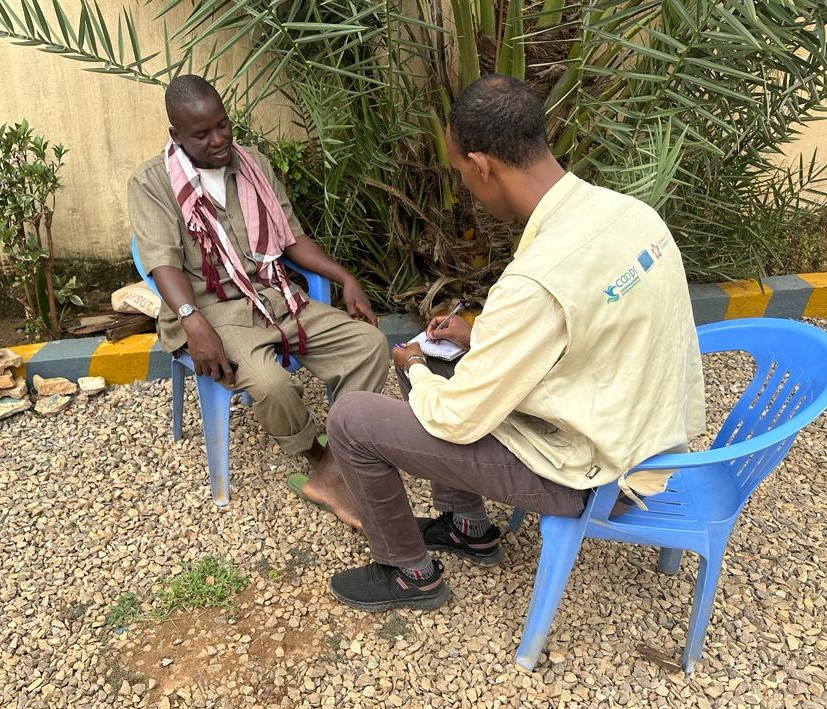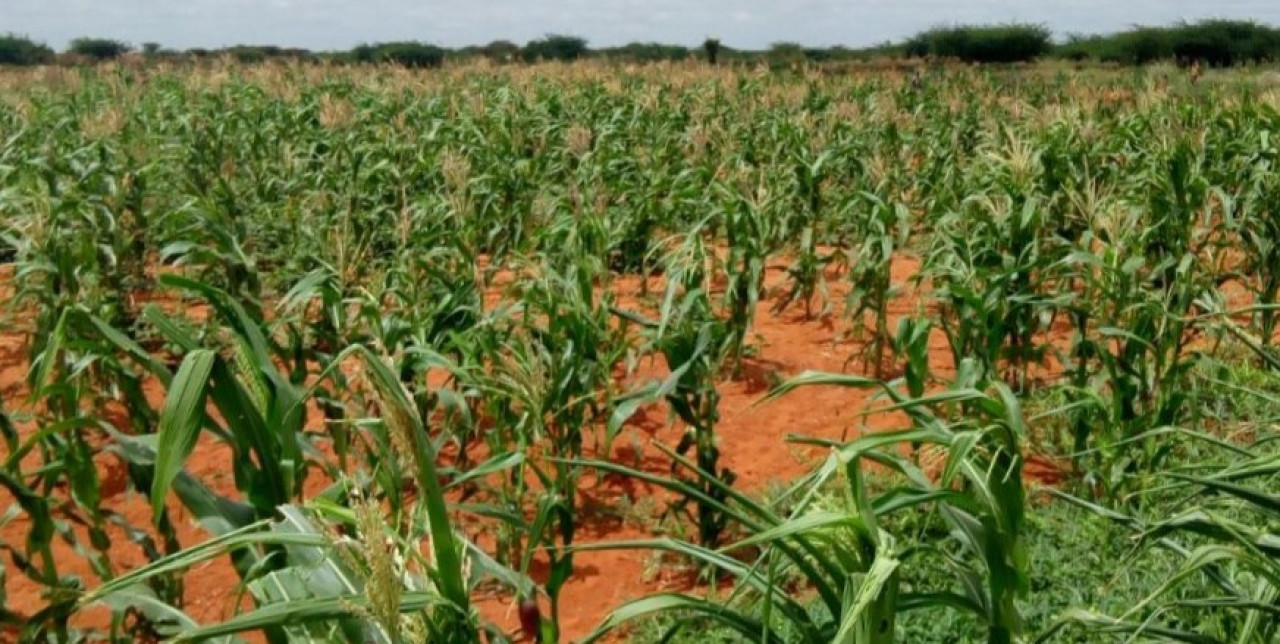29-11-2023 | di COOPI
Somalia. Three meals every day for Adhan Sugow's six children
In Somalia, a country suffering from repeated climate crises and emergencies, the SCC (Somali Cash Consortium) is a lifeline fund for many people. Thanks to European Civil Protection and Humanitarian Aid Operations the Project “Integrated Implementation of Multipurpose Cash Assistance to Support the Famine Prevention Response and Crisis-Affected Somali Households project” has been implemented for 12-month, from April 2023 until March 2024, by the Consortium members.
Led by Concern Worldwide as the lead agency and several NGOs membrs of the Consortium as implementing partners, such as COOPI – Cooperazione Internazionale, the project’s aim is to equip with ready-money vulnerable households affected by conflict, displacement, and natural disasters in Somalia and provide both short-term humanitarian assistance and long-term social safety net programmes. Thus, cash transfers allow beneficiaries to purchase the items they need most urgently, whether it be food, shelter, or other necessities. This is the case with the support the fund has given to the family of Adhan Sugow, who told:
We at times used to have only one-time meal a day due to shortage of food but now we consume three meals a day as a result of the cash support received.”

Adhan is a 37 years-old married father of 6 children living in Kormari village, a pastoral area that depends on livestock as the main source of livelihood. The village is 76 km from the main city of Berdaale in the Bay region, and its location in a remote, as well as insecure, area undermines the population's difficulties in accessing basic services, such as health care, education, and clean water.
Adhan is a pastoralist and his 50 sheep and goats and seventeen camels are his only source of income. He reared them for meat and milk, but he also sales them in the market. Usually, his earnings were enough to cater for his family’s needs and they could afford at least a meal to eat. However, as a result of the drought, he lost much of his livestock to susceptible diseases and had his assets completely depleted. Consequently, he had to depend on financial support from relatives, which was not consistent.
He was living in a fragile condition, struggling to provide for his family basic needs, when the project’s team first approached him three months ago. He was worried because the humanitarian organizations feared delivering aid and reaching the remote rural areas of Bay, due to the area insecurities. Eventually, thanks to the project, he has beneficiated of three months of cash transfers, for a total amount of 120 dollars each month.
He was free to use the money as he saw fit, without any restrictions, which enabled him and his family to cope and overcome the persistent drought. The same mechanism helped others to migrate to major towns, where agencies operate and aid is accessible in camps for internally displaced people. Instead, Mr Adhan explained:
I did not leave my village, because I hope things will get better, while also getting support from close relatives.There is no doubt that everything in my family’s life has changed positively. I have repaid and cleared all the debts I had before, purchased variety of foods and with some of the amounts I bought farm inputs, so as to rebuild my life and become self-dependent.
However, there are challenges still existing, as needs are proportional to the total number of members of my family. I hope things will be always better for our future."
The communities also urged the European Civil Protection and Humanitarian Aid Operations to continue helping them to rebuild their livelihoods. The project, in fact, saved lives and improved the ability of vulnerable drought and crises-affected Somali households to meet their basic needs and increase access to basic services. Moreover, Mr Adhan also argued the cash transfer support may have averted huge displacements induced by clan conflicts due to limited resources to share during such difficult time. At the same time, according to Adhan, the project has stimulated markets.
COOPI works in Somalia in partnership with local and international NGOs, within consortia such as SCC, to address repeated emergency conditions while building long-term resilience. Mobile money transfers have proven to be a flexible, efficient, effective and low-cost way to address the needs of recipients.




 Somalia
Somalia